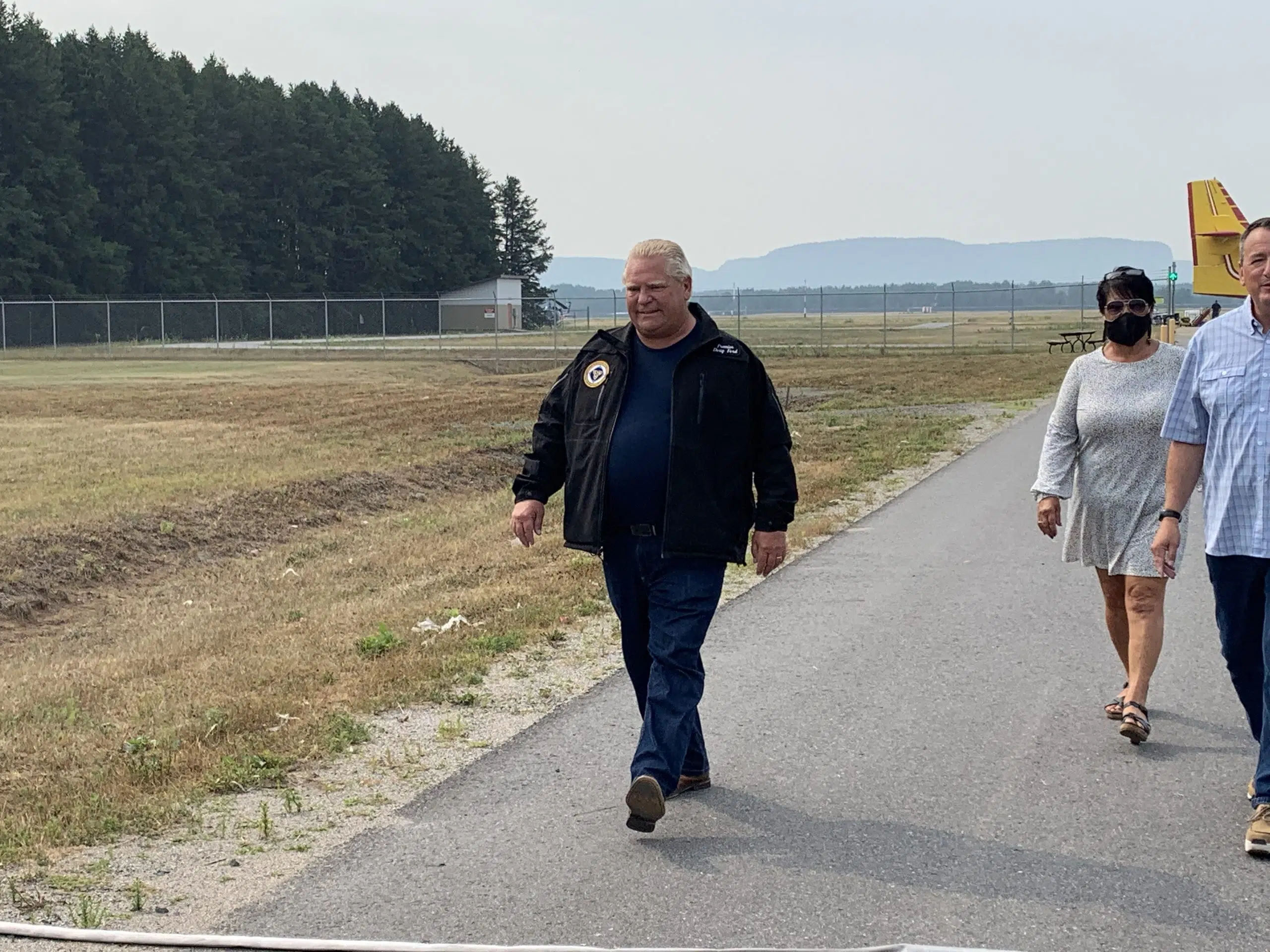
Thousands have already been displaced because of the raging forest fires in Northwestern Ontario, with many more preparing to evacuate if conditions worsen.
In response, Premier Doug Ford visited Thunder Bay to meet with the wildfire evacuees who are being hosted at the Valhalla Inn.
He was joined by Minister of Indigenous Affairs Greg Rickford.
The visit comes as many across the region are pleading for the province to declare a state of emergency because of the fires, much like British Columbia recently did.
Premier Ford explains why he is holding off on an emergency declaration, stating it would not change firefighting and support efforts as much as people may think.
“It’s not going to add anymore resources, it’s basically the province coming in and taking over everything,” says Ford. “We believe in working in collaboration and co-operation with First Nations and municipalities.”
The Nishnawbe Aski Nation has been advocating for a state of emergency for some time now, first asking the province for one on July 12.
Grand Chief Alvin Fiddler does not understand the decision by Ontario to hold off.
“I was in Kamloops a couple weeks ago, it’s serious there in British Columbia and it’s just as serious here in Ontario, so I don’t really understand why they refuse to make it a declaration.”
The displacement of so many communities has led to worries there may not be enough beds to house future potential evacuees.
Fiddler goes on to say that the emergency declaration would help ensure people displaced in the future will have somewhere to go.
“It would allow all of us to access the resources that are needed, including beds and that’s our concern right now.”
The Premier went on to say there will be spaces for those who need it.
“We have lots of spaces in Toronto and the GTA,” explains Ford. “If they’re willing to come down to the GTA and Toronto, we’ll be there and we’ll welcome them with open arms.”
Premier Ford’s visit comes as the Nishnawbe Aski Nation sent a plan to Ontario that would support their communities during times of crises, including forest fires.
Grand Chief Alvin Fiddler says this is a plan that has been in the works for a while, and recent events show how crucial it would be.
“It’s recognizing the growing threats to our communities, whether it be climate change, floods, and forest fires,” explains Fiddler. “We have a plan, it just needs to be supported by Ontario and Canada.”
Premier Ford says he has received the plan, but has yet to look it over.
“I’m going to run through that and work with them hand in hand,” says the Premier. “This is about collaboration. This is about everyone working together from First Nations, to EMOs, to ministries.”
The report, Emergency Management for First Nations in Ontario, provides 20 recommendations including:
- Establish clear roles for the federal and provincial governments, and First Nations through tripartite agreements.
- Maintain the distinction between an “emergency” and “disaster”, where an “emergency” focuses on institutional response, and a “disaster” focuses on the degree of harm.
- Scale the definition of “disaster” to each individual First Nation, focusing on each First Nation’s ability to cope as a benchmark.
- Eliminate the distinction between social emergencies and other types of emergency hazards or provide dedicated funding for social emergencies.
- Create a mechanism to empower emergency declarations by First Nations.
- Ensure that all pillars of emergency management are conceptualized as a “disaster cycle” with all pillars given equal consideration, and contribute resources to pre-disaster pillars.
- Develop remoteness indices/indicators specific to emergency management and apply the remoteness indices/indicators to First Nations in Ontario.



